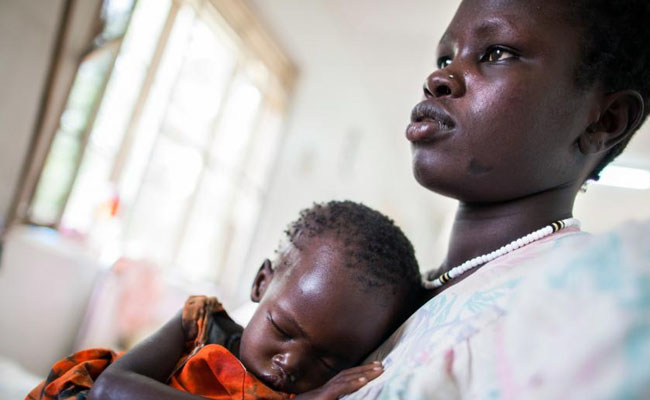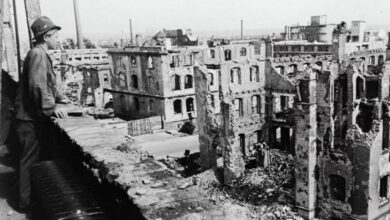Without food or education… The specter of death haunts Sudanese children as the intensity of the war escalates

Sudanese children are facing one of the worst periods of their lives. They have become targets in the fighting, paying the price for daily conflicts. Their education has been disrupted, they cannot find food for their day, and they suffer from hunger and thirst. The specter of death follows them everywhere.
According to the international news agency Reuters, more than two children were killed in renewed clashes and conflicts in the Sudanese capital, Khartoum, since Monday morning. The Sudanese Ministry of Health stated that 217 people were injured in the battle, including 72 in critical condition, and other victims were killed in an airstrike, including at least two children.
Children pay the price
According to the French news agency, a network of activists transporting the wounded to the few functioning hospitals reported that two of the victims were children. This is the toll of a single day, as killing children has become a regular occurrence in Sudan.
The agency further stated that the escalation of fighting, reaching an unprecedented level since the conflict began in April last year, indicates that the crisis is far from being resolved. Witnesses have reported clashes, artillery fire, and airstrikes as the crisis enters its eleventh week, leading to the displacement of 2.5 million people and creating an unprecedented humanitarian crisis in the region.
Among the displaced, 600,000 people sought refuge in neighboring countries, especially Egypt, Chad, and South Sudan.
The French agency continued by stating that the individual displacement of children after losing their families has been the most difficult and harsh aspect of this war. Human rights organizations and relief teams have observed children under the age of ten heading south and west, fleeing the conflicts.
Unrelenting escalation
Meanwhile, the international news agency Reuters confirmed that residents in the three cities that make up the wider capital – Khartoum, Omdurman, and Bahri – said that the sharp escalation in fighting began on Saturday evening and continued relentlessly until Sunday.
The fighting in the capital and other parts of the vast African Arab state has intensified since a series of ceasefires mediated by the United States and Saudi Arabia failed to halt the violence. Talks on a permanent ceasefire, held in Jeddah last week, have been postponed, as Washington and Riyadh are reportedly looking to change the negotiation format.
However, it seems unlikely that the ongoing urban war will lead to victory for any party to the conflict, while children, mostly under the age of ten, bear the brunt of the fighting.
Mohamed Samani, a 47-year-old resident, said, “Since early morning in north Omdurman, we have been subjected to airstrikes, artillery shelling, and fire from anti-aircraft support forces. Why did the world leave us to die alone in this war?”
As expected, the fighting in Khartoum has spread to other parts of Sudan, mostly in the western region of Darfur, where a genocide occurred in the early 21st century, resulting in the death of 300,000 people and the displacement of 2.5 million.
Eyewitnesses reported an escalation of violence in recent days in Nyala, the largest city in Darfur. Meanwhile, the United Nations sounded the alarm on Saturday about the killing of members of the African ethnic group Masalit in the town of Geneina in West Darfur.
In Nyala, eyewitnesses noted a noticeable deterioration in the security situation in the past few days, with fierce clashes in residential neighborhoods. In Geneina, the attacks have led to the displacement of tens of thousands of people to Chad.
Safe passage
According to the American news agency Associated Press, on Saturday, the spokesperson for the United Nations Human Rights Office, Ravina Shamdasani, called for a safe passage for people fleeing Geneina, especially children, and for relief workers to gain access. This came after reports of summary executions between the city and the Chad border and “ongoing hate speech,” including calls to kill or expel the Masalit people.












